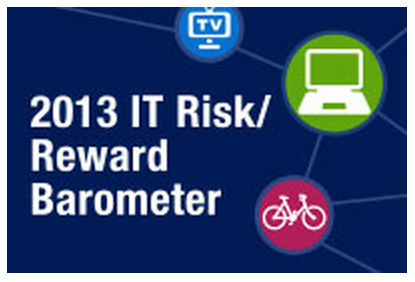Discount coupons are OK, but consumers consider drive-by location marketing an invasion of privacy. That's the warning message that research across four countries (US, UK, Mexico and India) by ISACA would appear to be flagging loud and clear to retailers wanting to maximise the marketing potential of customers with smartphones.

ISACA, which specialises in helping business get the most value while managing risk related to information and technology, asked more than 4,000 consumers about their holiday season shopping habits and their opinions on privacy. This revealed that shoppers in India and the UK were the most resistant to location-based marketing on smartphones, with more than 70% declaring tactics such as sending unrequested special offer messages when they walk past the store concerned would be considered invasive.
The 2013 ISACA IT Risk/Reward Barometer suggests that receiving a text message from a store as they walk by is almost as invasive for people as if they were to go inside and be greeted by name by the clerk despite never having met them before. In the UK, 69% of consumers said they would, however, be happy to be sent a discount coupon on their mobile device. Indeed, across all four countries surveyed people were generally more receptive to the idea of targeted discount codes by text rather than special offers arriving as they walk by that may not be relevant to them.
Mexicans were the most welcoming to the location-based SMS marketing, with more than 40% saying that they would not find it invasive. Interestingly though, Mexicans were the only consumers to find online recommendations based on browsing history and recent purchases more invasive than 'offline' SMS and location-based marketing techniques. In the UK and the US, however, consumers were happy to be marketed to online. Or, at least, they were happier than being marketed to in-store. Indian consumers found both online and offline marketing equally invasive. Some 46% of Indians found it invasive for web sites to recommend products online based on browsing history and 43% said recommending products based on recent purchases was also invasive. Consumers in the UK, US and Mexico didn't find this tactic as invasive as a website knowing their geographic location.
"These insights into what consumers find invasive is particularly topical given the buzz around big data and marketing" says Ramsés Gallego, international vice president of ISACA who continues "there are plenty of exciting and inventive applications and ways marketers can sell a brand, but it is important not to lose sight of what consumers consider an invasion of their privacy".
Indeed, only a very brave or very foolish (and there is often little to separate the two) business would ignore the feelings of consumers when it comes to how strongly they consider privacy a right. At the very least, the savvy retailer should be thinking about how best to provide transparency regarding the information they are collecting from their customers and how it will be used for marketing purposes. "Despite how much information people share online, they still cherish the concept of personal privacy" John Pironti, risk advisor with ISACA confirms "retailers that use technology to try to save shoppers time and money without asking permission first may actually do more harm than help to their bottom line this holiday season."
ISACA offers the following tips to protect shoppers’ privacy this holiday shopping season:
Read privacy policies. Understand what personal information websites and mobile apps are requesting and how it will be used. If there is no privacy policy, it’s a red flag—your personal data may be sold without permission.
Be smart about location-based services. Don’t opt-in to beacon-type mobile apps unless you trust the retailer and their security and privacy practices.